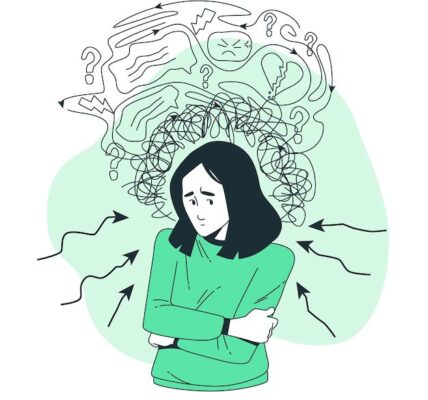Stress is unavoidable, but its effects on the brain and body can be profound. While short-term stress can help us stay alert and focused, chronic stress can lead to severe mental and physical health problems. Understanding how stress works and its impact on the body can help us develop healthier coping mechanisms.
When we encounter a stressful situation, the brain activates the hypothalamic-pituitary-adrenal (HPA) axis, triggering the release of stress hormones like cortisol and adrenaline. These hormones prepare the body to respond to threats by increasing heart rate, blood pressure, and energy levels.
However, chronic stress keeps the HPA axis activated for extended periods, leading to adverse effects such as:
Hippocampus shrinkage – The hippocampus, responsible for memory and learning, can shrink due to prolonged exposure to cortisol, leading to memory issues.
Amygdala overactivity – The amygdala, which processes fear and emotions, becomes more sensitive, making us more prone to anxiety and fear responses.
Prefrontal cortex impairment – The prefrontal cortex, which regulates decision-making and impulse control, weakens, leading to poor judgment and difficulty concentrating.
Besides its impact on the brain, stress also triggers a wide range of physical health problems, including:
Cardiovascular Issues
Chronic stress increases blood pressure and heart rate, putting extra strain on the heart. Over time, this raises the risk of heart disease, strokes, and hypertension.
Weakened Immune System
Long-term stress suppresses the immune system, making individuals more susceptible to illnesses, infections, and chronic conditions like autoimmune diseases.
Digestive Problems
Stress affects digestion by altering gut bacteria and increasing the risk of irritable bowel syndrome (IBS), ulcers, and acid reflux. It can also lead to appetite changes, causing weight loss or gain.
Hormonal Imbalances
In women, stress can disrupt menstrual cycles and contribute to fertility problems. In men, it can lower testosterone levels and affect libido.
Sleep Disruptions
Stress-related overactivity of the nervous system makes it difficult to fall and stay asleep, increasing the risk of insomnia and poor sleep quality.
Fortunately, there are effective strategies to reduce stress and mitigate its harmful effects:
Exercise Regularly – Physical activity releases endorphins, natural mood boosters that counteract stress hormones.
Practice Mindfulness and Meditation – These techniques help activate the relaxation response, reducing cortisol levels.
Deep Breathing Exercises – Techniques like box breathing or 4-7-8 breathing promote relaxation and lower heart rate.
Maintain a Healthy Diet – A balanced diet rich in omega-3s, antioxidants, and whole foods can help reduce inflammation and stress.
Get Enough Sleep – Prioritizing rest and good sleep hygiene allows the body to recover from stress.
Seek Support – Talking to a therapist or loved ones can help process emotions and find solutions to stressful situations.
While stress is inevitable, understanding its impact on the brain and body allows us to take proactive steps to manage it. We can protect our mental and physical well-being by implementing healthy coping strategies, leading to a happier and healthier life.






